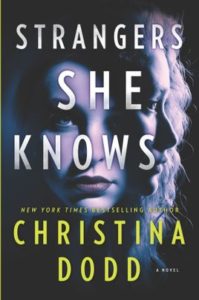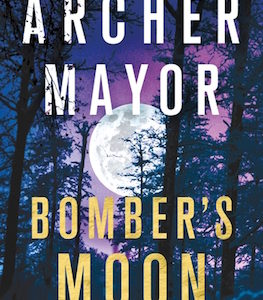Definitions
Alpha female: A heroine who, through quick thinking and swift action, overcomes all obstacles to achieve her goals of justice and retribution against evil.
Relationships: Those pesky things that get in the way of justice, retribution and, most of all, goals.
__________________________________
James Bond—the ultimate action hero. Twelve original Ian Fleming novels and two short story collections. Fifty-seven years of movie stardom and seven actors. Yet after I watch the movies, laugh and feel the thrill…I forget them immediately.
What’s wrong?
Nothing. I love this series. The action is nonstop. Bond is a brilliantly developed character. The best part is that I can watch the movies over and over, and the plot is always new. So many entertainment wins.
But James Bond doesn’t enjoy relationships.
Enjoy? He doesn’t have relationships. No parents, no children, no friends. He has sexual encounters, but Bond’s main relationships are with his villains. Change Bond’s gender to female, and that charming, insouciant double agent may be labeled a sociopath dangerously disconnected from society.
No one has ever truly made a female Bond work (and, yes, there have been attempts).
But why not? What’s the difference between the long-established male suspense story and the rapidly developing and ever more popular female-driven thriller?
I’m going to do it. I’m going to state the obvious.
It all comes down to gender.
Please brace yourselves—I’m going to generalize.
Female protagonists can step into the Bond-type nonstop action. They can shoot, they can fight and they can skulk; all it takes is training.
But a woman’s traditional role is to develop, build and protect relationships, and from an early age we’re taught those skills through words and examples. We’re taught to balance what we do, what we think and how we feel with caring for others’ emotional needs. It’s this real-life balancing act that’s reflected in today’s female-driven thrillers.
In my Cape Charade series, Kellen Adams has survived spousal abuse, six years in Afghanistan, a gunshot to the head, and she suffers from a year-long gap in her memory. She’s capable, driven and on her own except for the friends she keeps close. One day, the past arrives on her doorstep, and she is suddenly part of a family she doesn’t remember.
Relationships! She has to figure out how to build close personal relationships! With a child! While at the same time foiling thieves, delivering priceless objects and defeating a ruthless serial killer. It’s only when her young daughter is in danger that Kellen truly understands how high the stakes can become. Her emotions—terror, fury, impatience, desperation, love—are what transform these action adventures into thrillers.
* * *
I asked Karen Robards, New York Times bestselling author of The Guardian suspense series and the upcoming World War II thriller The Black Swan of Paris, how she, as a writer, balances friend, family and parental relationships while writing an action-forward novel featuring a female protagonist?”
She replied, “One day when I was struggling to make my characters live and breathe on the page, I decided to try crawling into my heroine’s head and looking at the world through her eyes. I immediately realized, first, that I, Karen Robards the writer, had a cat sleeping on my lap. If, say, a murderous Russian spy kicked his way into my house just at that moment, before I could leap up and run I had to deal with said cat. Who, not being anybody’s fool, would probably run with me. And would probably trip me up so I fell flat on my face, giving the murderous spy a really good shot at taking me out. Then I realized my whole life was like that: however inconvenient they may sometimes be, I have children, I have parents, I have siblings, I have pets, I have friends. Those relationships shape me, they shape my world. They’re an inescapable part of who I am—and they also frequently get in the way of whatever I’m trying to do. My characters have their own web of connections who are frequently inconvenient and get in their way. Bianca, the beautiful badass heroine of The Guardian series, is made human and relatable through her relationships. She loves her friends, longs to be closer to her distant father, wishes she had a cat. No matter what mayhem is occurring in her life, she has the same unbreakable bonds we all do, and she must deal with them. Those bonds are the foundation of Bianca’s character. They make the reader care about her, they make the stakes higher when her life is in danger, and as a writer I balance them for her just as I do the relationships in my own life. As I frequently (jokingly, or, um, not) tell my sons, ‘I’m your mother. There is no escape.’ Relationships, even for characters in a book, are like that.”
* * *
Romance creates a different set of problems for the female protagonist. In previous generations, in films and novels, when the bad guys were shooting, the hero was returning fire and the heroine’s only job was to run to shelter. It seemed she could always be depended upon to fall down and twist her ankle.
That plot device was a source of some slight irritation among women viewers/readers.
But in today’s female-driven thrillers, women are strong, independent and capable. They don’t need to be rescued, but they do need romance and they do need love. I asked Jayne Ann Krentz, New York Times bestselling romantic suspense author of Untouchable, “How do you use the disparity between men and women to develop the action and relationship?”
She replied, “Female readers relate to the problems of navigating relationships, but they are drawn to heroes who are willing to work on relationships, too. The leading characters are not competing for alpha status. Instead they have complementary skill sets that allow them to work together in a partnership based on mutual respect. At the heart of my stories there is always the construction of a relationship built on trust. To me, romantic suspense means a story in which every twist in the plot generates a twist in the relationship—and vice versa. When it comes to writing strong heroines, I am always conscious of two things. First, the stakes must be personal. She’s not just trying to save the world, she’s trying to save an innocent—a sister, a friend, a child, a small town, herself. Second, in a novel of romantic suspense there are, by definition, a heroine and a hero. To achieve a sense of balance it’s important to give each of them a suitably heroic task that is critical to the successful, satisfactory outcome of the story.”
* * *
Earlier I said that a woman’s traditional role is to develop, build and protect relationships, and from an early age we’re taught those skills. But what about protagonists who, for whatever reason, were removed from an environment that fostered those abilities?
For the answer, I turned to Gregg Hurwitz, author of the New York Times bestselling Orphan X series.
I suppose you’re wondering why I talked to a guy author with a guy protagonist in an article about alpha females?
All men are not James Bond, and some (most) men also struggle with relationships, so I asked Gregg, “With a long-running series featuring one hero, how did you develop Evan’s learning curve throughout the books? What do you see as the biggest challenge for you as the writer in achieving balance between Evan the action hero and Evan the evolving human being?”
He replied, “When I set about creating Evan Smoak, I wanted to have every aspect of him represent his character in some way. What he drinks, how he fights, how he speaks, what clothes he wears, the vehicle he drives. Unlike some other characters, we may know and love for their consistency, Evan is evolving. He’s been raised to embody a perfect assassin and when we meet him at the start of the series (Orphan X), he is in the process of realizing that this bruising upbringing has cost him a lot. He doesn’t speak the language of intimacy. Jack’s very commandments bind him to a life of loneliness. He sucks at small talk. And while he’s perfectly at home calculating the wind drift of a sniper round, he’s undone when asked to bring snacks to an HOA meeting. Why I placed him—an archetypal character—in the real world where you and I live is to show that contrast. To show his process of becoming. More important than who he garrotes or how he sets a breaching charge are the personal stakes. Will he figure out how to be a father figure to Peter? Can he take care of Joey (Josephine), the brilliant sixteen-year-old hacker Jack left in his charge? Can he figure out how to date Mia, the single mother DA who lives downstairs? If she ever finds out who he really is, she’d be forced to arrest him, adding even higher stakes to an already high-stakes game for our intrepid lead.
When Evan was twelve years old, Jack told him: “The hard part isn’t killing. The hard part is staying human.” And writing that balance—writing a character who I hope is exciting and daring and badass, but who is also embarking on a journey to the heart of what defines him—that is the hard part for me as well. We are rooting for him the way I suppose we root for ourselves, for our friends and family. To find relationships that are sustaining. To find who we are. To find meaning. As we all know, that is the challenge of a lifetime.”
* * *
In the end, what makes the alpha female’s (or male’s) story become a thriller isn’t balance, it’s lack of balance. As in life, the alpha female can schedule her assignment to steal the Hope Diamond and return it to the Smithsonian so she’ll be home in time to drive car pool, take cupcakes to her daughter’s Brownie troop and have a date night with her husband. But timing is everything. Choose the wrong terrorists’ hangout, get a flat tire on the way from the airport, have to defuse a bomb in the cupcake shop and your romantic dinner is leftover beanie-weenies at 10:00 p.m. There are never enough hours in the day to fit all the crises in.
Perhaps that’s why female-driven thrillers are so popular—we identify with the alpha female, and occasionally we need to be reminded that developing and protecting relationships, all relationships, is difficult, messy, sweaty hard work, but in the end the rewards are worth the struggle.


















